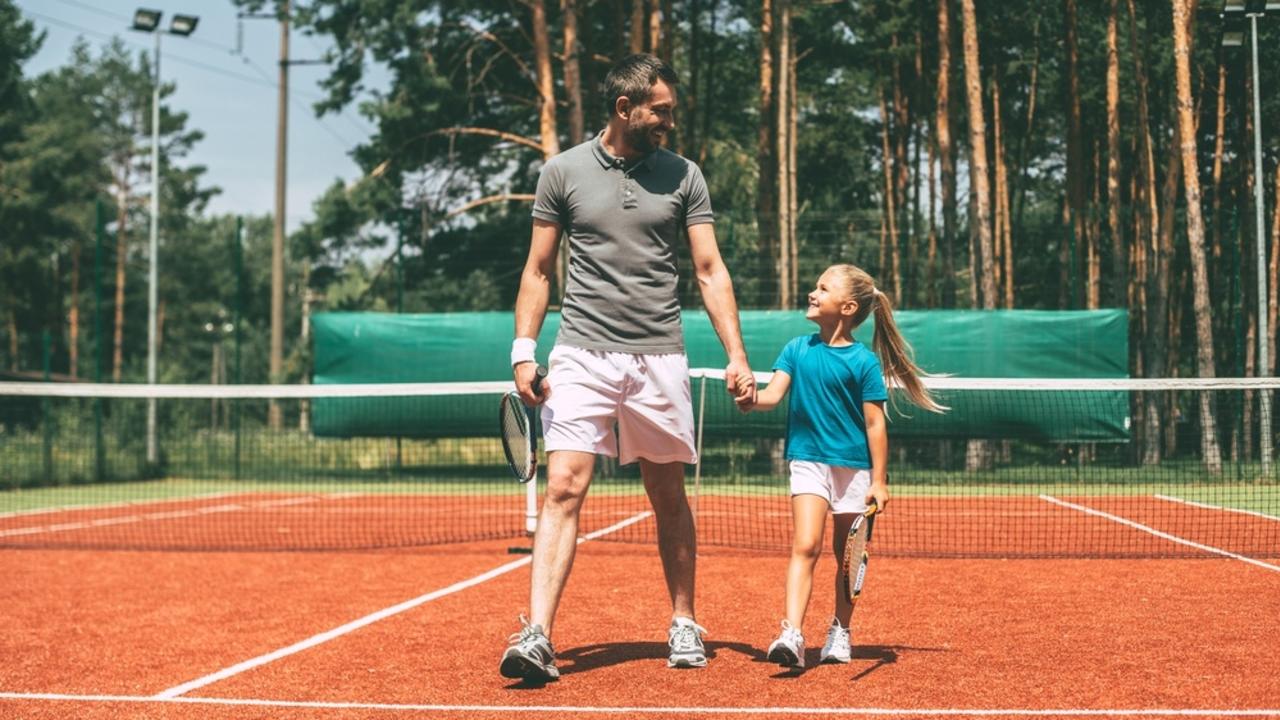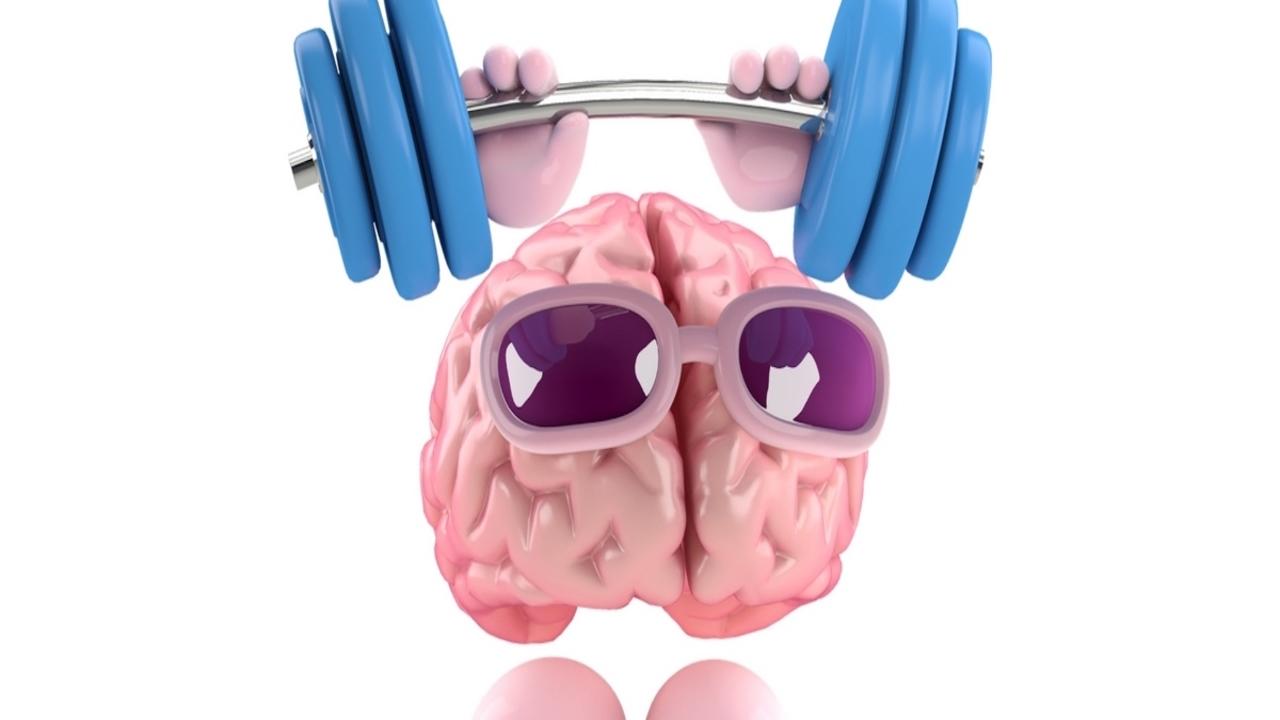WELCOME TO OUR FREE ARTICLES, VIDEOS, AND RESOURCES
Would you like us to send our best free tips, tools, and special offers straight to your inbox?
2 Powerful Communications That You May Not Have Realised Develop Mental Toughness...

If I could choose one attribute that I believe most supports player development of mental toughness I would choose emotional intelligence. But what is it and how can we nurture it in young players?
What Is Emotional Intelligence?
Emotional intelligence is the ability to respond flexibly and intentionally to difficult emotional experiences like frustration and nerves.
This ability allows us to choose actions that serve our best interests even when we are experiencing difficult internal experiences (thoughts, feelings, body sensations, urges.)
So, for instance, when faced with a match situation that evokes anxiety, emotional intelligence would allow players to recognize anxiety, be able to accept the normality of that reaction, and continue on to face the existing challenge.
And when engaged in the challenge, frustration will naturally arise after an error.
An emotionally intelligent response would see players recognize the feeling then refocus attention on a process that...
How Does Physical Training Increase Player Mental Toughness?
Less Physical Discomfort…First, fit players tend to experience less physical discomfort than unfit players in the same match circumstance. Therefore, fit players are better placed to focus their energy and attention on helpful processes that increase the chance of success, whereas unfit players are more likely to start taking actions based on their experience of physical pain.
But there are also other reasons for the link between physical fitness and mental fitness that have to do with how our brains operate.
Stronger Bodies, Stronger Brains…
It turns out that physical pain and emotional pain are housed in the same brain area.
So what this means is that when players evoke physical discomfort through physical training they are literally making their brain stronger in coping with physical pain.
And because this part of the brain is also largely responsible for coping with emotional pain, physical training makes players fitter at coping with...
How Joao Monteiro Became the Biggest Improver in College Tennis…

In 2015, I was privileged to be invited by Head coach Jim Thompson to work with the Virginia Tech men’s tennis college team…As part of this, I worked with the players directly and Assistant Coach Stephen Huss also participated in a PhD project throughout the season designed to help develop his skill in coaching mental toughness…During the season the returning players were able to achieve an average 25% improved singles win rate and an all-time best school ranking…
And one of those players was Joao Monteiro…
Joao completed his college journey in May as the most improved player in College tennis…
In this post I want to give you a summary of Joao's story which Coach Huss first told a couple of months ago....But also give you a glimpse of how Joao's development was in part a result of him embracing my 4A Cycle process and the VT coaching team's improved skill in helping him develop mental toughness…
Joao’s Freshman...
SPECIAL REPORT: Control Traps Explained...

About 15 years ago I was frustrated and helpless regarding what I thought were my own failings in trying to help players achieve ‘ideal performance states’…But after some great mentoring from a psychology supervisor of mine, I underwent a process over several years of discovering that the ‘ideal performance/zone state aim was deeply flawed…As well as discovering the better way to develop mental toughness for tennis.
And I’m going to share with you examples of how to coach this better way in just a minute…
But first I have to explain how the field of sport psychology has failed us with some misinformation about how to help players become mentally tough.
How Sport Psychology Has Failed Us…
For a long time the field of sport psychology has mistakenly held on to the view that the path to playing mentally tough tennis involves the ongoing search for the zone.
This means that we’ve usually been taught that...
How I Discovered A Better Way To Develop Player Mental Toughness…

In just a minute I’ll tell you about the experiment that led me to discovering the better way to coach mentally tough tennis, but first I’ll give you some important background…
Early Career Learning…
In 2003/2004, a couple of early coaching failures taught me quickly that I simply didn’t have the coaching skills to handle the competitive challenges that many players face.
And these early coaching experiences fuelled a desire in me to become better skilled in helping players reach their competitive potential.
To do this, I spent a couple of years working for my former sport psychologist Michael Fox (this is Allen Fox’s brother who has been a very successful sport psychologist in Australia). Time spent with Foxy further inspired me to become a sport psychologist myself and although I enjoyed working across different sports, I naturally found myself spending most of my time as a psychologist working in tennis.
During those...
What Makes USC’s Peter Smith Such a Great Coach?

A couple of things compelled me to write this article…First, when coaches find out that I played for Peter Smith when he was at Pepperdine, they often ask me about his coaching qualities. Also, last week I had dinner with Jack Jaede…
Jack is a player who I worked extensively with over several years as a junior and when he finished high school in 2014 he had a tough decision to make…
Tennis Australia coaches believed that Jack should forgo college and turn professional and therefore offered him an incredible scholarship opportunity to train at the Brisbane Academy among top 100 ATP players.
But I believed that there were a couple of colleges that could provide an even better environment to help Jack develop both his personal and tennis qualities, and so I strongly recommended he consider these pathways.
One of these recommendations was Peter Smith and USC.
In the end Jack chose to go to USC, and after talking with him about how happy he is...
Developing Emotional Fitness vs Emotional Control...
One of the major ideas I focus on is the importance of helping players develop 'emotional fitness' rather than 'emotional control'...
Understanding the difference between these concepts and increasing skill in helping players develop 'emotional fitness' is usually the easiest and most powerful way that we can better help players develop long-term mental toughness...
So here's a clip of me discussing these ideas during my Tennis Australia Coaches Conference presentation...
What Should We Say to Players Pre-Match? (Includes audio example…)

I often get asked by coaches for advice regarding talking to players pre-match…The pre-match chat has obvious importance as it’s our chance to positively influence players’ chance of committing to actions that both develop their game and increase their chance of success.
While I’ve never had a formal structure to my pre-match chats with players, I decided to review some audio files and discovered that there are 5 elements that I generally include when doing so.
So I’ll briefly summarise these 5 elements and their importance for you in this article...
Then I’ll share with you an audio file of me talking with recent Virginia Tech graduate Andreas Bjerrehus before his 2015 match with Virginia’s Ryan Shane…
## I swear in this recording so please don’t listen if you’d find that offensive…
## A couple of terms that I used during this example will likely be foreign to you as they come from a story that I...
3 Ways Brain Science Can Help Player Development...

Let’s look at 3 examples of how a better understanding of the brain can be applied to promote player development.
The 3 Examples…
1.) Aerobic Exercise Before Practice
Aerobic exercise affects the brain like fertilizer on grass creating ideal brain conditions for growth and learning.
So a short period of exercise prior to practice boosts player learning during practice.
And to magnify these benefits we can use pre-session exercise to develop players’ concentration, self-awareness, and emotional capacities.
To do so ask them first try to maintain attention on a particular aspect of exercise completion such as their breath, or the physical discomfort in their bodies.
Then the aim is to notice as quickly as possible when their attention has wandered, and refocus it on their chosen target.
Additionally, when players choose to maintain attention on and practice tolerating physical discomfort during exercise this strengthens brain regions responsible for...
Lendl's Rehab Influence Pays the Biggest Dividends for Murray…
At first watch, Andy Murray’s superb dismantling of Milos Raonic in the Wimbledon final may have looked like a simple case of too much speed, too much craft, and too much defence for the big Canadian…Together, this combination certainly played a major role in Murray claiming his 2nd Wimbledon title…Slowly but surely building pressure that took its toll in the form of incredible Murray returning and passing + uncharacteristic Raonic errors (especially in the tie-breaks which he often dominates.)
But behind this storyline lay a subtle sub-plot directed by Ivan Lendl…
Throughout his career Murray’s biggest achilles heel, along with his second serve, has been an addiction to self/support team abuse.
While I explained my opinion of this process in great detail when describing Murray’s mental capitulation against Djokovic in last year’s Australian Open final, I will review briefly again here before discussing how Murray’s...
